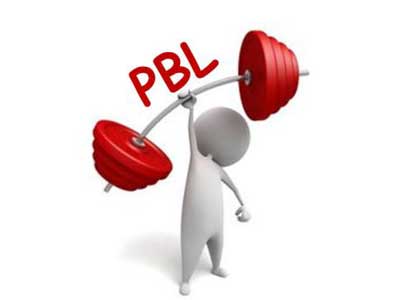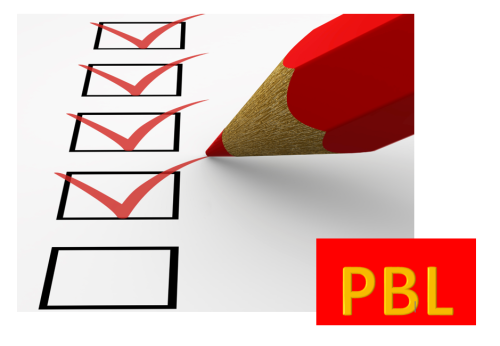5 Ideas to Incorporate Assessment in Project Based Learning … Grounded in the Standards


Welcome to the third article in a series devoted to grounding PBL in the standards. As you explore the ideas in this article I do hope you can see that our content standards provide a wonderful opportunity for our students to do, a concept at the foundation of PBL. Before reading, please take a moment to subscribe to this blog by RSS or email and join me on twitter at (mjgormans). Taking that moment ensures that we can continue to network. Also, please share this post with others and even provide a re-tweet. Most of all, thanks for being one of those over 25,000 visitors a month, over 10,000 subscribers, and possibly one of the thousands of educators that have attended my workshops at schools and conferences. Also, remember that I can come to your conference or school district and provide engaging, authentic, affordable, and purposeful professional development. Please check my Booking Page to see how I could be part of your school PD or Conference plans. Thanks so much. Michael Gorman (mjgormans@gmail.com).
Will you be attending Tech & Learning Live Chicago on May 5? I'll be presenting an anything goes roundtable on the topic of Project-Based Learning. I'll also be presenting at Alan November’s BLC in Boston this July (2017). Check out my sessions! I would enjoy meeting you! (Link to Classes at Conference) PBL Splash A Look at Project Based Learning (1/2 day Workshop) I hope to see you in Boston this July! Also, check out my Booking Page for presentations and workshops I can bring to your school or conference.
5 Ideas to Incorporate Assessment in Project Based Learning… Grounded in the Standards
In my workshops, I emphasize that one of the building blocks of PBL (Project Based Learning) maintains that a project must be grounded in standards and assessment. In the first post, I covered the first part of what I call PBL’s “Building Block G” (Grounded in Standards) and provided you 15 ways that content is facilitated in PBL I do recognize that many times it is the content that is tested on the standardized test, end of course assessment, and other high stake tests such as ACT, SAT, and AP.
In my last post, I examined how process, understanding, and 21 Century Skills are incorporated in standards based PBL. I provided ten ways to look at the standards with this lens focused on doing. In this mode students are now able to go beyond basic content acquisition. In PBL. students are provided the opportunity to do something with the standards.
In this post, I wish to speak to the idea of assessment in PBL. The reason I have put assessment the “G Block” Grounded in Standards is because there must be assessment, and it must assess the standards of content and process skills. As we dig deeper into standards and PBL we can find areas where assessment must be employed. Let’s examined five areas of assessment that I often find an important part of the PBL experience.
- Obtaining student progress data is imperative and typical summative assessment can be employed. After-all this will help students prepare for many of those high-stake tests that continue to prevail. Also, be aware that a summative form of assessment can go far beyond a written test. Keep in mind the ideas of performance, product, and demonstration of knowledge. Using a summative means to see if students have not only memorized, but can also show understanding and real world connections of the standards is vital. What are other ways we can test student learning? In other words, PBL does not require teachers to throw out the test. It might be that we are just looking at the test in a different way.
- Just as important, if not more important, is formative assessment. While this might be graded, the emphasis should be on the learning and improving. These formative pieces could be activities, discussions, check offs, benchmarks, games, practice, and metacognition. It should include formative assessment that allows for critique from teacher. It should also focus on review and reflection by peers and the individual. Through this process students will become aware of “how to learn” and will discover and practice the flow, cycle, and iterations that is the essence of learning. This is the foundation for student ownership and self-regulation of learning. Formative assessment should occur though out the project. Keep in mind that formative assessment’s main function is to plan for and facilitate the learning experience. While there may be some reasons to enlist a grade, the main function is to keep student learning on a steady course, headed toward success and mastery of the content. Formative assessment can be provided by the teacher, but the learner must also find ways to assess where they are at in their learning. This often involves discussion and metacognition. While formative assessment can be very informal it should also be deliberate and thoughtful. I often suggest that teachers create a journal for formative assessment as they go through the week. For a planned formative assessment, the activity should state:
- What standards are being formatively assesses in this activity?
- How are the standards being formally assessed?
- What real world value is there for the assessment?
- Who is doing the assessment (or combination of who) … teacher, student, peer, mentor?
- While there might be a place for group grades, keep the standards in mind. Does a group grade reflect the learning of the individual or the group? In PBL should every student find mastery in what is required? The goal is always yes. For this reason, there must be individual accountability in a project. While students may have different roles, they must be held accountable and the project must be constructed to support all students on the content standards being addressed. Therefore, there really is not one big grade in a project, but instead there are ongoing grades based on all of lessons, activities, formative learning opportunities, and experiences. Some of these might be a group effort but most should really be that individual contribution.
- PBL unit does not end with the cumulation of the project. All parties should be provided time to reflect and receive feedback on the learning experience. Teachers should get feedback from all participants while looking for ways to edit and revise the project. Did the project provided student with an avenue to learn, understand, and make connections with the standards? Students should also reflect on what the learning meant to them. Did it possibly open new doors to future learning or even a career? Did it bring a new passion and what are ways students can continue to build on this new area of interest? This final assessment for all individuals involved might be the most important part of the PBL experience.
- If learning is to be meaningful than the ultimate owner of the assessment is the same as the owner of the learning. By now you understand that our students must own the assessment. They must find ways to assess themselves whether that be getting feedback from a teacher, computer guided feedback, critique from a mentor, thoughts from a peer, or reflective metacognition on their own. Teachers must facilitate this process by providing students this important mirror essential to the learning experience. PBL has student ownership at its center and the gift of lifelong learning comes from authentic student empowerment and self-assessment..
Thank you for joining me and I hope you found this information something you can use in your school and useful to share with other educators. As always, I invite you to follow me on twitter (mjgormans). Please give this post a retweet and pass it on to someone who will benefit. To ensure you do not miss a future valuable post or other resource covering PBL, Digital Curriculum, STEM, 21st-century learning, and technology integration please sign up for 21centuryedtech by email or RSS. Have a great week… enjoy the Websites! – Mike (https://21centuryedtech.wordpress.com/
Tools and ideas to transform education. Sign up below.
cross-posted at 21centuryedtech.wordpress.com
Michael Gorman oversees one-to-one laptop programs and digital professional development for Southwest Allen County Schools near Fort Wayne, Indiana. He is a consultant for Discovery Education, ISTE, My Big Campus, and November Learning and is on the National Faculty for The Buck Institute for Education. His awards include district Teacher of the Year, Indiana STEM Educator of the Year and Microsoft’s 365 Global Education Hero. Read more at 21centuryedtech.wordpress.com.
